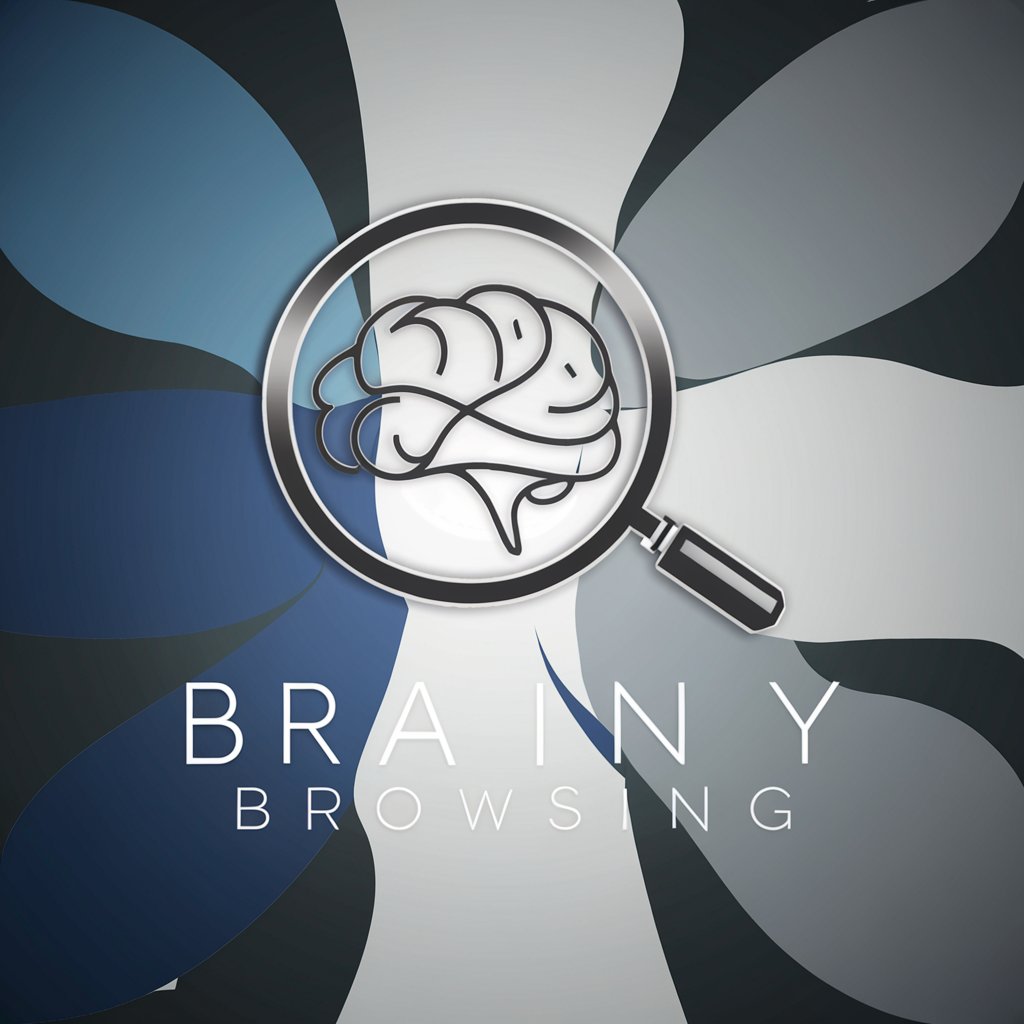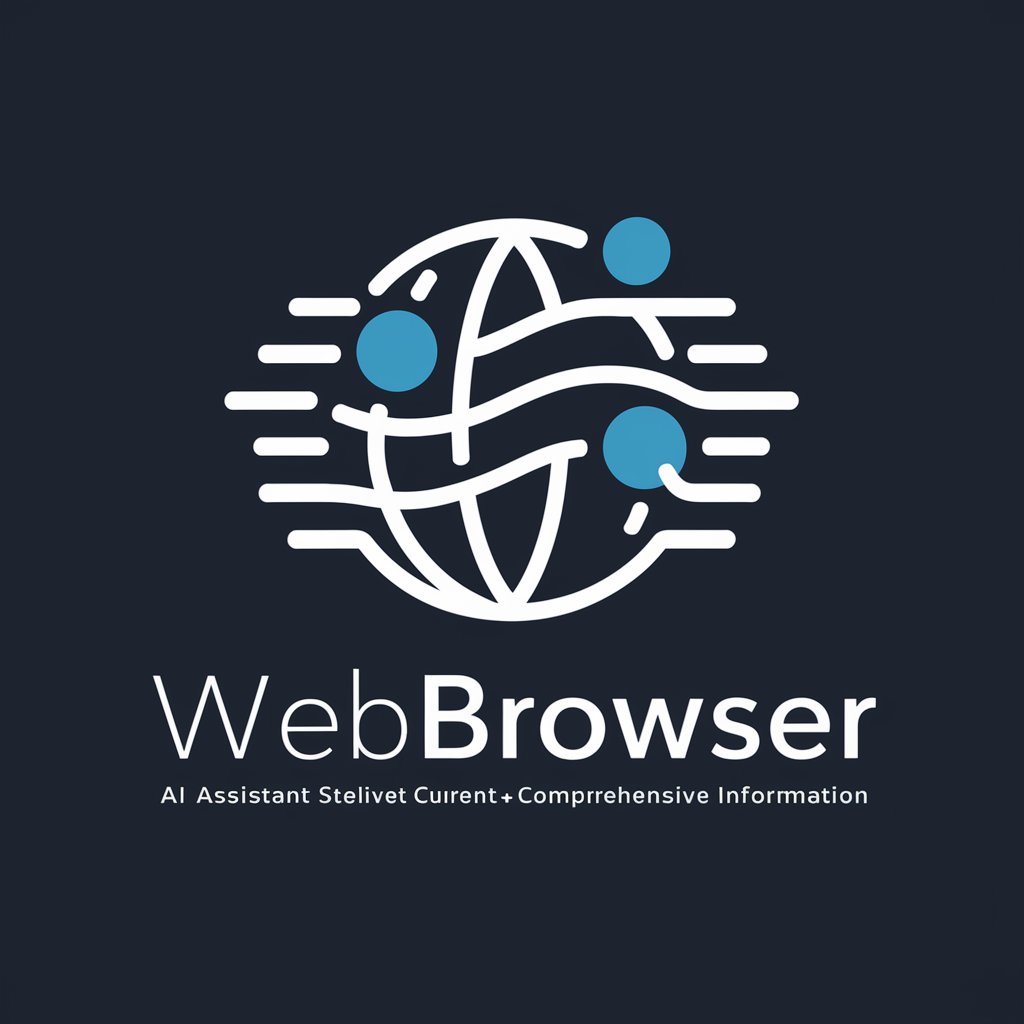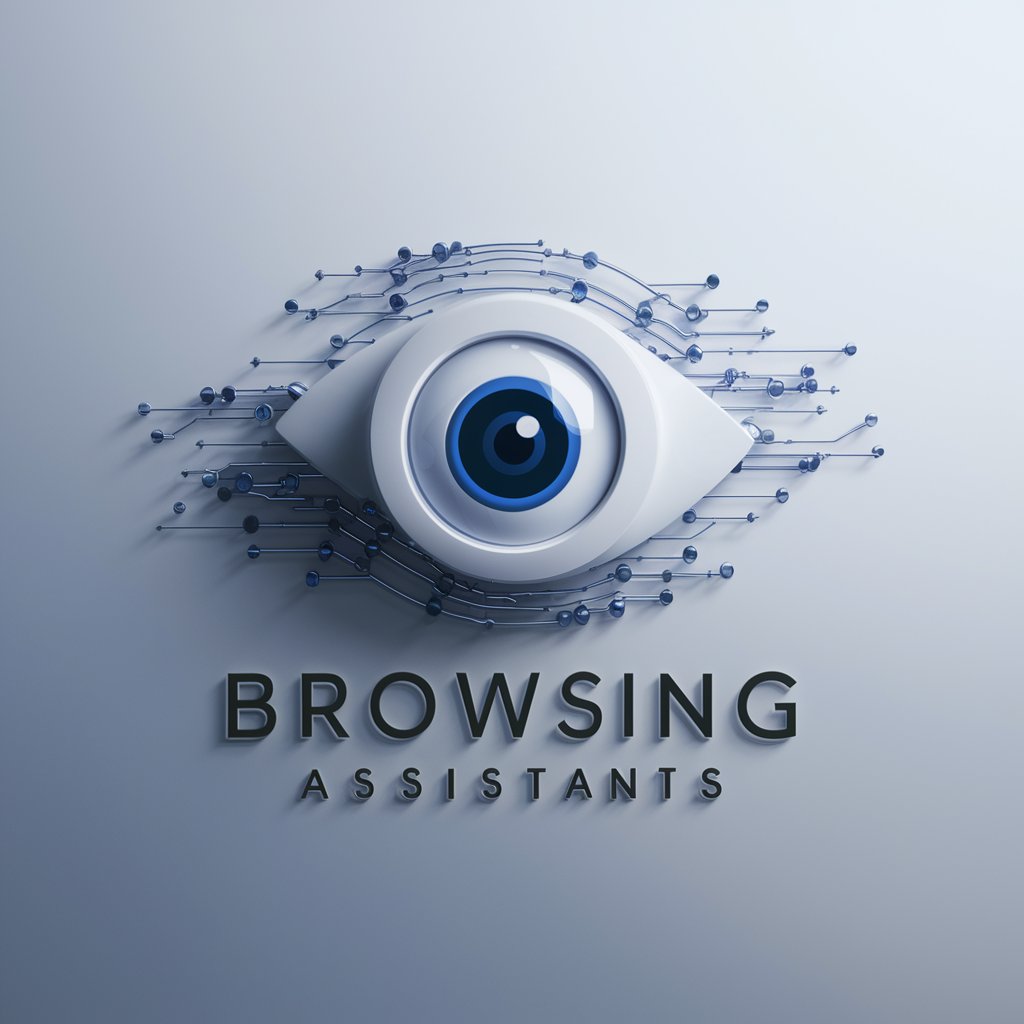
Web Browsing - AI-powered Web Search

Unlock the web's potential with AI
Get Embed Code
Introduction to Web Browsing
Web Browsing is designed to navigate and interact with the vast resources of the internet directly from within a conversation. Unlike traditional web browsers that require users to manually search, visit, and read web pages, Web Browsing simplifies this process by performing these tasks on behalf of the user, based on natural language queries. Its purpose is to make information gathering more efficient, accessible, and conversational. For example, if a user is looking for the latest scientific research on climate change, Web Browsing can directly fetch summaries of the most recent studies, present key findings, and even access paywalled content if permissible. Another scenario could involve comparing product prices across different online retailers to find the best deal, all done seamlessly within the chat interface. Powered by ChatGPT-4o。

Main Functions of Web Browsing
Content Summarization
Example
Reading and summarizing long articles or reports.
Scenario
A user interested in a detailed report about renewable energy sources can receive a concise summary highlighting the key points, methodologies, and conclusions without reading the entire document.
Information Verification
Example
Checking facts or data across multiple sources.
Scenario
When a user encounters a claim on social media about a political event, Web Browsing can verify this information by referencing reputable news outlets or official statements, providing a more grounded perspective.
Comparative Analysis
Example
Comparing product features or prices from different vendors.
Scenario
Before making a purchase, a user can ask Web Browsing to compare the prices and features of a specific gadget across multiple online stores, ensuring they get the best available deal.
Research Assistance
Example
Facilitating academic or professional research.
Scenario
Students or researchers can use Web Browsing to gather sources, extract data points, and understand trends on a given topic, significantly speeding up the initial phases of their research projects.
Ideal Users of Web Browsing Services
Students and Academics
This group benefits from streamlined research processes, easy access to study materials, and the ability to quickly verify academic information, aiding in the writing of papers and preparation for exams.
Professionals and Businesses
Professionals rely on quick, accurate information for decision-making, market research, and staying updated on industry trends. Web Browsing offers a competitive edge by providing rapid insights and data analysis.
Casual Internet Users
For individuals seeking to learn about a new hobby, understand current events, or simply satisfy a curiosity, Web Browsing simplifies the process by delivering precise answers and exploring topics in depth.

How to Use Web Browsing Effectively
Initiate Trial
Start by visiting yeschat.ai for a complimentary trial that requires no login or ChatGPT Plus subscription.
Identify Need
Determine your specific query or the information you seek. This could range from academic research to market trends.
Utilize Keywords
Craft your questions or statements using relevant keywords to improve the accuracy and relevance of search results.
Review Results
Carefully examine the information provided. Utilize the links or summaries for deeper insights or verification.
Refine Search
If the initial answers don't meet your expectations, refine your query with additional details or different keywords for more precise results.
Try other advanced and practical GPTs
Brainy Browsing
Empowering Research with AI Insight

Terse
Precision at your fingertips.

Expert Interviewer
Simulate Real Interviews, Master the Art

Various Bible Reflections
Explore Deep Bible Insights

chicago hoods news
Empowering Communities with AI-Driven News

RoguelikeGPT
Embark on AI-Powered Dungeon Quests

Web Browsing Ninja
Navigate the web smarter, faster.

Web Browsing GBT
Bringing the web's knowledge to your fingertips.

Ashley Jones
Your AI-powered Cultural Companion

Bones
Empowering your code with AI insights.

Coach Rob Jones
Empower Your Journey with AI-Powered Coaching

The Blue Zones Kitchen
Nourish Life with AI-Crafted Blue Zones Cuisine

Frequently Asked Questions about Web Browsing
What makes Web Browsing different from regular search engines?
Web Browsing, powered by AI, provides more contextually relevant answers by understanding the nuances of user queries, unlike standard search engines that rely heavily on keywords and SEO rankings.
Can Web Browsing help with academic research?
Absolutely. Web Browsing can delve into online databases and scholarly articles, presenting summaries and insights that are crucial for academic research.
Is personal information safe while using Web Browsing?
Yes, user privacy is a priority. Personal information is not required to use the service, ensuring anonymity and data protection.
How current is the information provided by Web Browsing?
Web Browsing accesses the most up-to-date information available on the web, ensuring users receive the latest content relevant to their queries.
Can Web Browsing understand complex, multi-part questions?
Indeed, its AI is designed to comprehend complex queries, dissect them into manageable parts, and fetch comprehensive, relevant information from the web.




